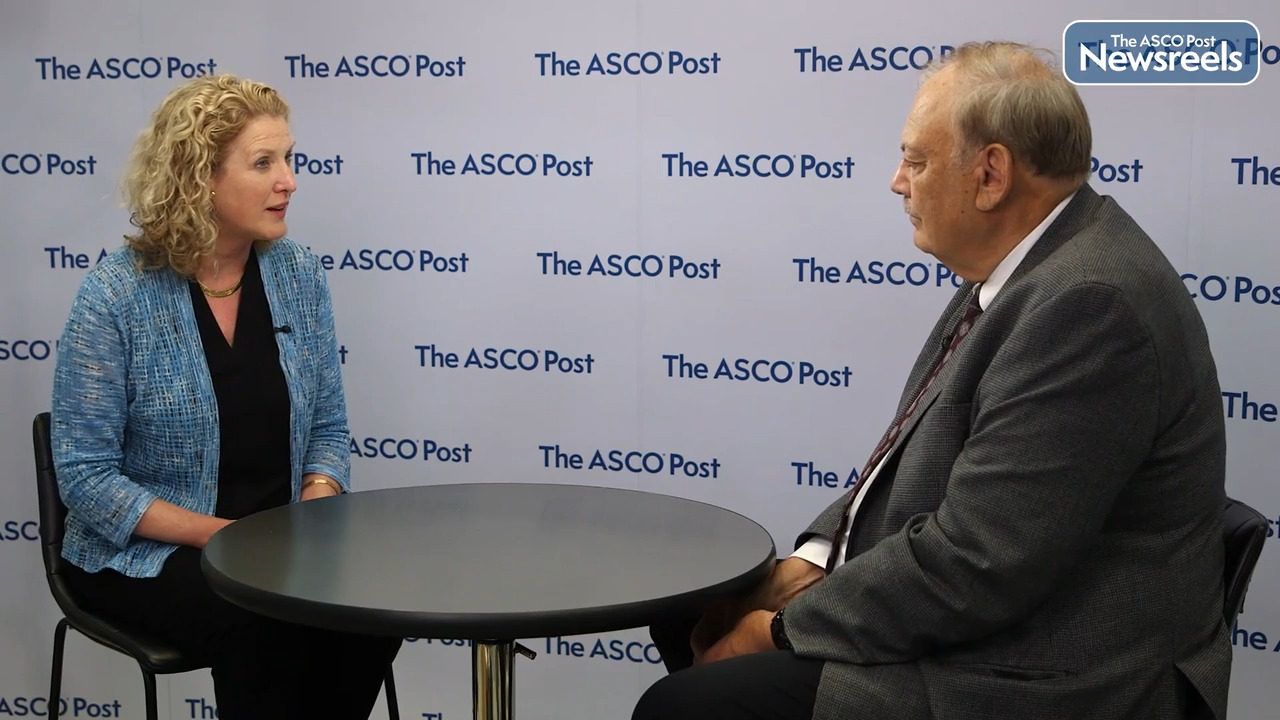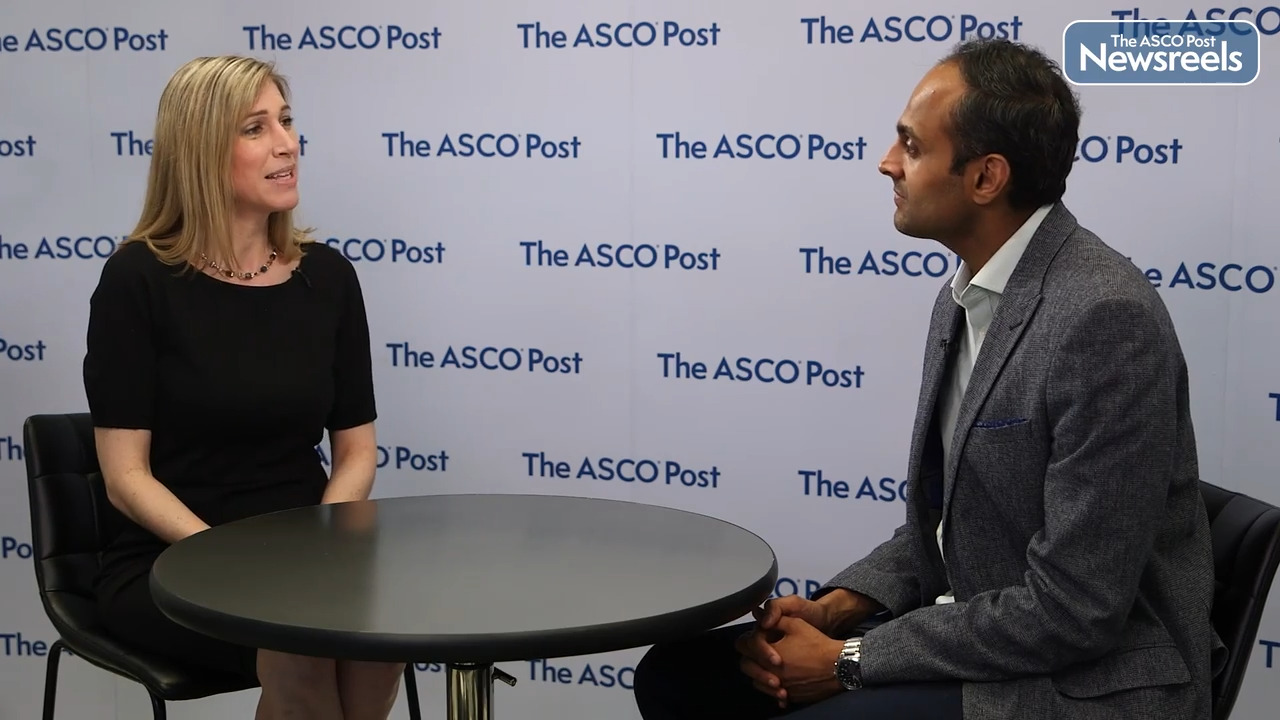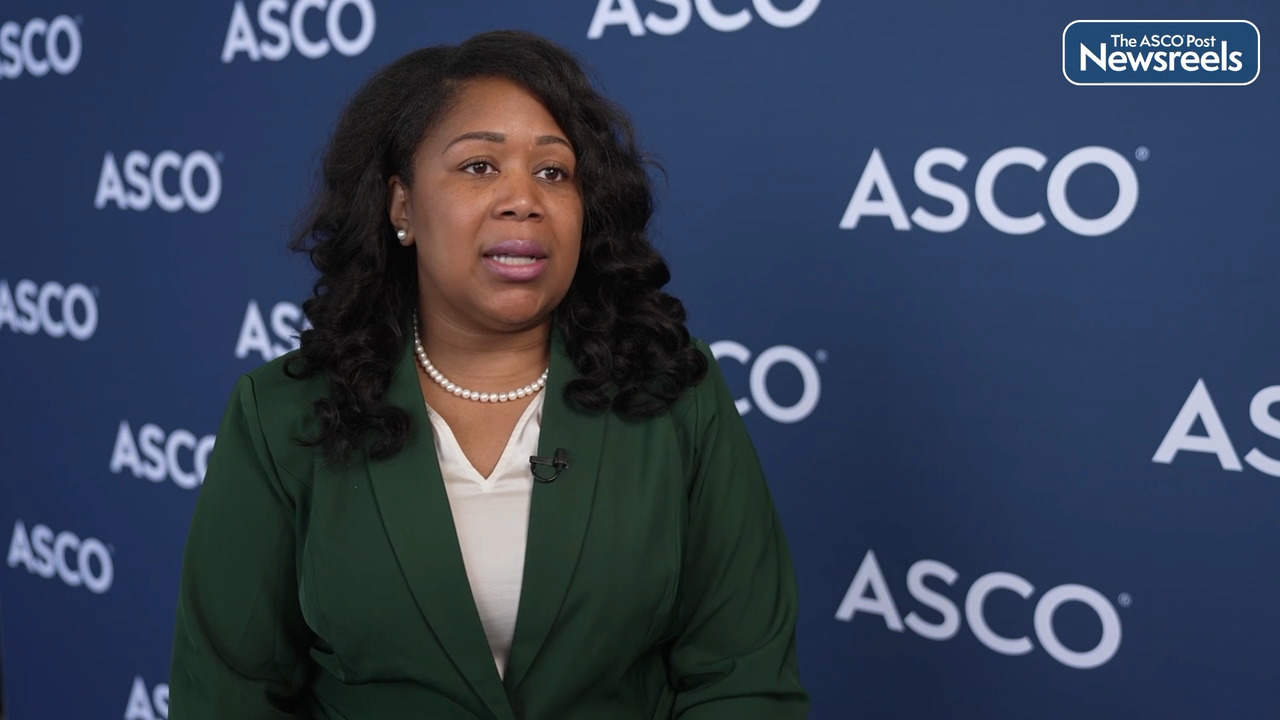Aaron T. Gerds, MD, on Anemia in Myelofibrosis: New Data on Treatment With Luspatercept
2023 ASCO Annual Meeting
Aaron T. Gerds, MD, of Cleveland Clinic Taussig Cancer Institute, talks about treating the anemia many patients with myelofibrosis experience because of JAK inhibitor therapy. The ACE-536-MF-001 study showed that luspatercept improved anemia and transfusion burden in this population, with a safety profile consistent with that in previous studies (Abstract 7016).
The ASCO Post Staff
Lisa A. Carey, MD, of the University of North Carolina at Chapel Hill, and Dennis J. Slamon, MD, PhD, of the University of California, Los Angeles, discuss phase III study findings on ribociclib plus endocrine therapy as adjuvant treatment in patients with hormone receptor–positive, HER2-negative early breast cancer. When added to standard-of-care endocrine therapy, ribociclib improved invasive disease–free survival with a well-tolerated safety profile (Abstract LBA500).
The ASCO Post Staff
Lisa A. Carey, MD, of the University of North Carolina at Chapel Hill, and Javier Cortes, MD, PhD, of the International Breast Cancer Center and Universidad Europea de Madrid, discuss phase II findings showing that one in three patients with HER2-positive early breast cancer may safely omit chemotherapy. Among the chemotherapy-free patients treated with trastuzumab and pertuzumab, the 3-year invasive disease–free survival was 98.8%, with no distant metastases (Abstract LBA506).
The ASCO Post Staff
Alicia K. Morgans, MD, MPH, and Praful Ravi, MRCP, MBBChir, both of Dana-Farber Cancer Institute, discuss an individual patient-data analysis of randomized trials from the ICECAP collaborative. A PSA nadir of ≥ 0.1 ng/mL within 6 months after radiotherapy completion was prognostic for prostate cancer–specific, metastasis-free, and overall survival in patients receiving radiotherapy plus androgen-deprivation therapy for localized prostate cancer. These findings may help identify patients for therapy de-escalation trials (Abstract 5002).
Ajay K. Nooka, MBBS, of Winship Cancer Center of Emory University, discusses findings from a pooled analysis of MagnetisMM studies. The data showed that, in patients with relapsed or refractory multiple myeloma who have not yet been treated with B-cell maturation antigen–directed therapies, elranatamab was efficacious and well tolerated.
The ASCO Post Staff
LaQuisa C. Hill, MD, of Baylor College of Medicine, Houston Methodist Hospital, discusses study findings showing that CD5 chimeric antigen receptor (CAR) T cells may induce clinical responses in heavily treated patients with relapsed or refractory T-cell acute lymphoblastic leukemia. Manufacturing CD5 CAR T cells with tyrosine kinase inhibitors seemed to improve their potency and antitumor activity (Abstract 7002).




